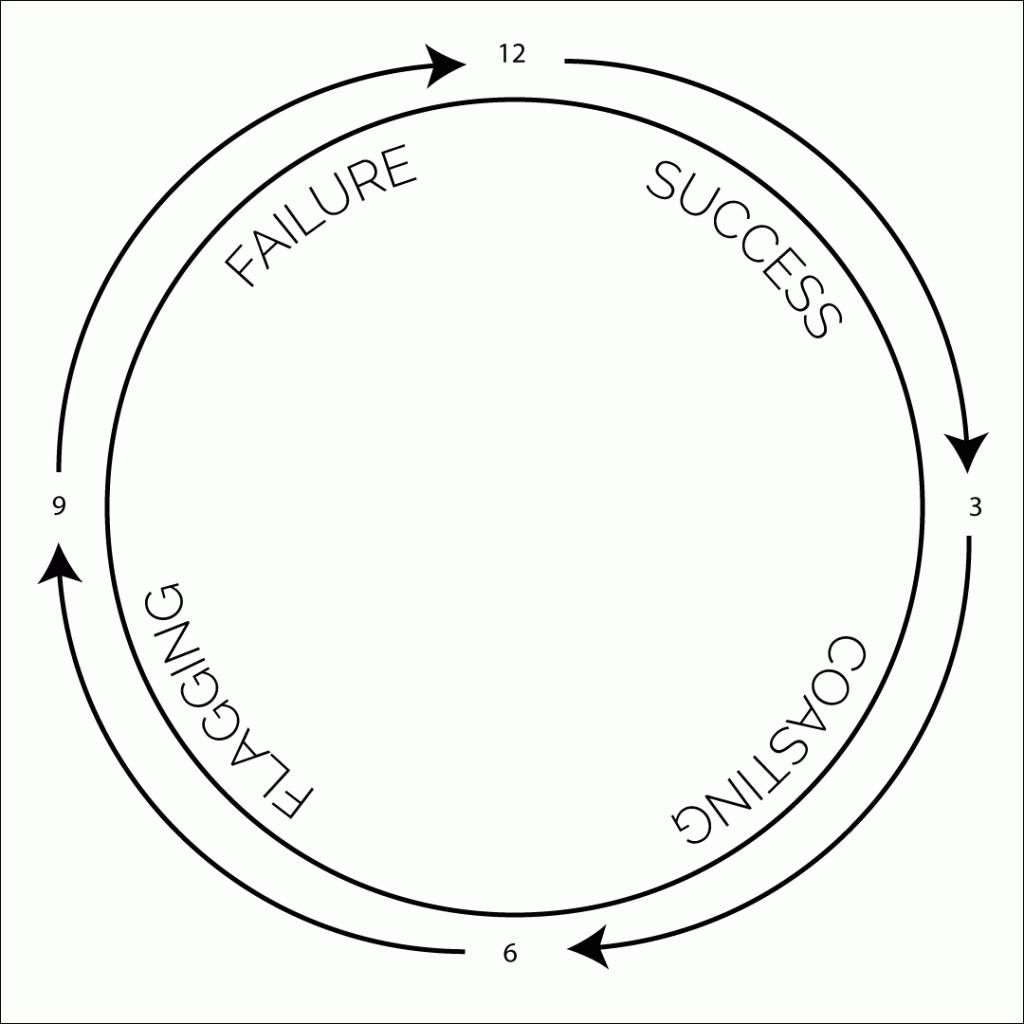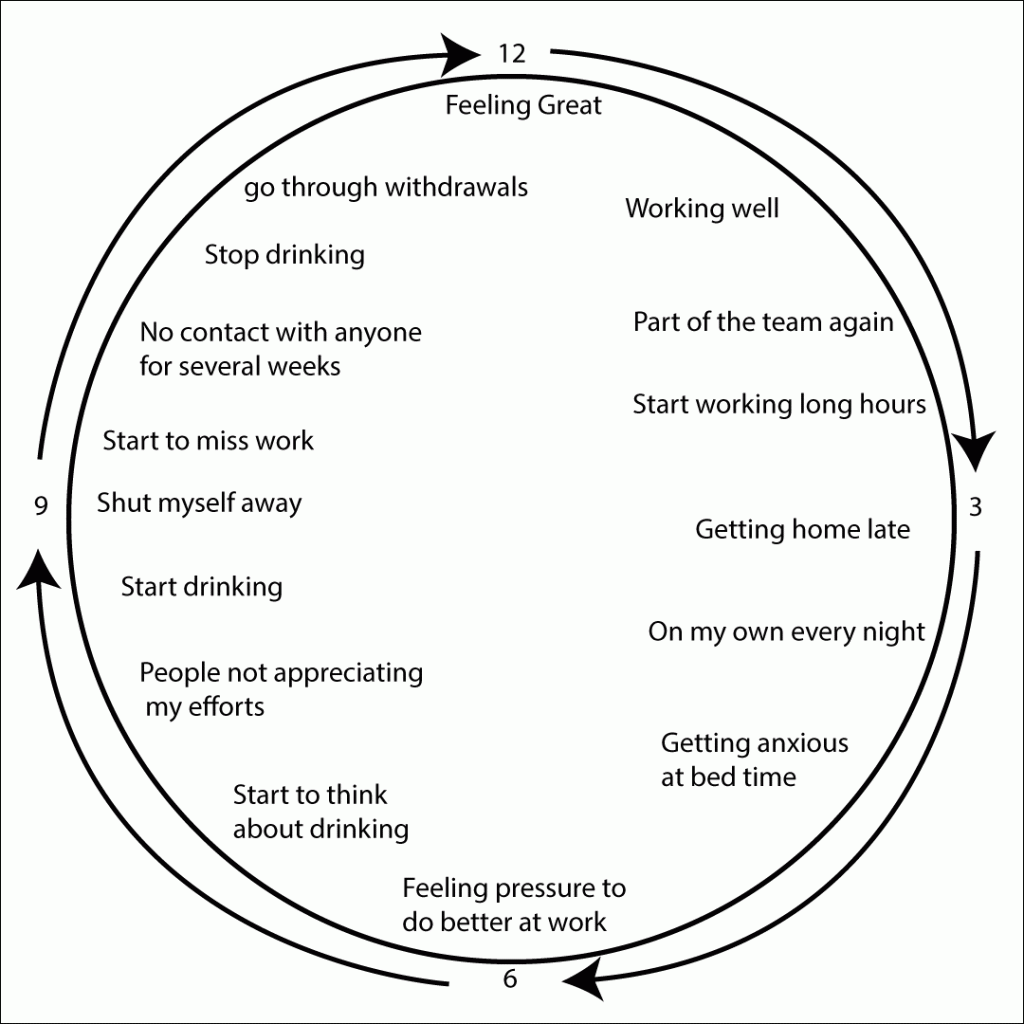Most things exist in a form which can be thought of as a duality. Would you know what ‘up’ is if there was no ‘down’? Dark if there was no ‘light’. Left and right, wrong and right. I think you get the idea.
My name is Dave Cooper and I am a recovery coach and psychotherapist. I believe that setting our success goals too tightly and narrowly in recovery is a trap. Having seen hundreds of people caught in it and helped them to get out of it I want to talk about the nature of the trap and how it can stand in the way of genuine recovery. Do you feel caught in a trap when you attempt to recover from addiction? Would you like to know how to avoid this trap? Read on for the answer!
How is the trap set up?

So how does this narrow definition apply to recovery from addiction and dependence? What is the typical situation once addiction has been discovered? Common sense tells us that ‘drugs are the problem’ therefore we conclude that I-he-she-they need to stop! But what have we done here? We have defined success and in so doing we have also defined failure.
Why abstinence is not a good target!

Your problem started when you defined abstinence as ‘success’. Because success is one half of a duo. The other being… you guessed it, failure. So when we invite success in we end up entertaining failure as well. They go together and cannot be separated. So you enter the trap when you believe the idea that you are only ‘acceptable’ as a human being when you are ‘clean’.
I believe that abstinence is much too narrow an aim. So learn to think much more ‘relationally‘ for authentic recovery.
Now I want to focus on the trap itself which is set up by this ‘common sense’ thinking. Aiming for abstinence. How did you get caught in this trap and what makes it so deadly? How does it work? Would you consider doing a short experiment with me? You could try this now if you like. Like a lot of these exercises it is very simple but very effective.
The cycle of addiction
One of the first things I do with new clients is to ask them to draw up their cycle of addiction. This is an exercise that will help you to make sense of the pattern of your dependence. So you will learn about yourself by drawing up the whole cycle from start to finish. Including the four phases of the cycle, Success, Coasting, Flagging and Failing will help you make sense of your experience.
If you haven’t done anything like this yet give it a try. It will really help you to make sense of your pattern of success and failure. Which is the trap you have fallen into in your life. You just need a pen and paper.
Start by drawing a large circle on the sheet of paper. Next place the figures as you see them below with 12 at the top and so on. Just like a clock face. Now in order to make sense of this idea it is important that you start and finish at the top. 12 o clock represents that moment when you have just stopped using or acting out and have decided to stay stopped.

The length of your cycle
Your cycle could be as quick as 24 hours if it involves something like cocaine. Or as long as six months if you are a binge drinker. If your addiction or dependence is more behavioral the length of the cycle could be more contingent on things like how long a project took at work. Or how long you were out on tour.
Don’t worry about the time it takes to get around your cycle, just think about the way you move through the four sections which I will now describe.
Success period
The first section is ‘success’! This one runs from 12-o-clock till 3-o-clock and may be full of hope and include a detox or treatment. It is the time where you have got clean and decided (for whatever reason) that you need to stop. You are committed and have a good reason to stay stopped. You have the recent memory of what a disaster using or acting out has been for you, and it is a fresh start!
Typical feelings and drivers at this stage are: Wanting to impress those around you that you are back and functioning again. Needing to get people to trust you and believe you. Needing to convince people that it won’t happen again. Hoping that people will not carry out the threats they have made like sacking you or leaving you.
Coasting period
So what happens? The next period I call ‘coasting’. this is often after a period of being ‘under scrutiny’ from others. maybe you have made promises etc. or are on trial at work. Once the heat is off you will enter a period of ‘coasting’. Which means that you are no longer trying so hard and you may have stopped practicing certain methods or guidance from a therapist or group. But you are still feeling good about what you are doing and you may still be getting encouragement from family friends or work colleagues.
Typical feelings during this period are: I’ve cracked it! This is easy. I am strong and I can do this. Everyone is congratulating me and I like the attention. Everyone appreciated the effort I am putting in.
Flagging period
What happens next? I call this period ‘flagging’ because after a while everyone stops congratulating you. They don’t even seem to notice that you are not doing what you like to do! They don’t appreciate you and the energy that kept you coasting has now run down. This means that things are still hard and may be getting harder but there is no longer any apparent benefit. The other thing that may be happening is that people around you are talking about how well you are doing whilst you are feeling worse and worse! as things get difficult you start to go back to old strategies like isolating or deceitful methods.
Typical effects of this phase are: Noticing unhappy or negative feelings more than positive ones. resenting people for not noticing your efforts any more. Feeling unhappy that people still do not trust you even after all this effort. Feeling bored or fed up with your recovery work. Finding that things are too much effort.
Failure period
At some stage this turns into out and out failure and you start using or acting out again. It all gets too difficult and one day using seems like a good idea again. This is often accompanied with lying or some kind of deceit. Of course the acting out or using shifts you more into the ‘dead world’ and so your living relationships start to suffer. At some point the whole thing comes crashing down and you decide you must stop and change. this may or may not include ultimatums from loved ones or your boss at work. either way, you are back at 12-o-clock.
Once you understand this pattern in general terms add your particular details in the way you see below. This can be done initially with whatever comes to mind as you meditate or become mindful around this cycle. Later you can do many of these cycles from all kinds of perspectives, such as an emotional perspective. How does it feel when you are in these different segments? Or from a relationship perspective. But first understand the basic idea
Typical feelings during this phase are: Justifying your attitudes because you are not understood. Feeling that you are being forced to be dishonest. Isolating because no one cares.
How does this fit with your cycle?
Now try adding some of your particulars to this idea. To help you get started I have included another diagram below with some of the typical things I see in my clients work. Such as – Getting back to work, being part of a team again. Functioning and earning. Of course it is likely that you will be trying too hard to impress everyone that ‘you are back’!
Notice below how the client starts off by ‘feeling great’! This is one of the biggest problems with the ‘abstinence aim’. What I want you to see is that the better you feel when you start at 12-o-clock, the worse you feel when you start using again! This is how the trap works.

If you completed the exercise you can probably see how your experiences fitted with the four phases of success, coasting, flagging and failing. Of course your cycle may look somewhat different but most of you will have got a lot from this exercise. Now apply this learning to the main idea of this piece, which is the trap of success and failure.
Putting it all together
I am going to give you an example of this which sometimes explains better. If we take the story of our client who says “I have to stop” to the next stage, what usually happens? Well, he stops! So what’s the problem you ask. He has achieved his goal on Monday eight-o’clock day one! Not bad. But what happens? Notice that this is not a growth goal, it is achieved instantly and instant ‘triumph’ brings a sense of pride. You often see this at this stage. And it’s often made more intense by the family who understandably want to see more of it.
Okay, so what happens now? He starts to count the days and maybe starts to wonder what all the fuss was about. This was easy! But he starts to feel worse. Maybe the family don’t appreciate his efforts as much after a few weeks. Maybe the boss is being too hard on him. At some point the inevitable happens and he is drunk again. Now he plummets from being a great success to being a terrible failure. Depression and isolation can follow.
Dealing with our success and failure
No one put it better than the poet Rudyard Kipling in his poem ‘if’.
If you can meet with Triumph and Disaster
And treat those two impostors just the same;
https://www.youtube.com/watch?v=EEFMVIfl2UY
Triumph and disaster are ‘success and failure’ and he calls them both ‘imposters’! He suggests that we treat them both the same, by which he means that we should reject them both.
If I ask you to think about the product of these states you will probably end up with something approaching pride and shame! That’s where they lead! The last thing you need is to get caught up in these as you cannot thik clearly about your situation and how to help yourself from these ‘states’.
I hope that you can now see the trap of success and failure and maybe you know that you have been caught in it. Please try your best to avoid feeling bad about this, rather concentrate on what you have learned today! (Did you notice what I did there? I got you out of the trap!)
I help people to see the trap for what it is and how counter productive it is. Similarly you can outgrow this trap for yourself. The way the trap works is through the addictive cycle and your efforts to succeed.
The healthy alternative
Remember at the beginning of this I called success and failure a ‘duality of concepts’. We have just spent some time looking at how these opposites can create a trap which you can become stuck in for years. But what is the alternative? I help my clients aim for something that is not part of a duality but is more of a unity or single thing. Growth!
I tell them that….
growth produces abstinence but abstinence does not produce growth!
You can think of this simply as a commitment to learning from everything that happens.
Growth as an aim
So try to avoid thinking of things as ‘good’ or ‘bad’ and start asking the question “what does this have to teach me”? Want to know more about this? here is a link to the ‘recovery box’.
You will only be able to get the most out of your learning if you are not working from a strong sense of shame or pride (which the trap of success and failure produces) so you can see why I asked you to do your ‘addictive cycle’ and how it could be so helpful in making progress.
As a result you will avoid setting yourself up to fail again! Remember you are not a success! You are not a failure! You are a human being! if you could go any faster you would.
Finally here are a few thoughts that will help you avoid the trap or dissolve it.
People will trust you when they decide to.
Your recovery is based on healthy thinking and values, not how long you have been ‘clean’.
People see more than what you show them.
Also at the end of every day ask yourself, “have I learned everything I can from what happened today”? And “Am I willing to apply what I have learned in the future”? If your answer is yes then you will become unstoppable. Then your recovery will become inevitable. And of course you will be out of the trap!
If you want to know more about this approach to recovery contact me at info@davecoopercounselling.org.uk





0 Comments